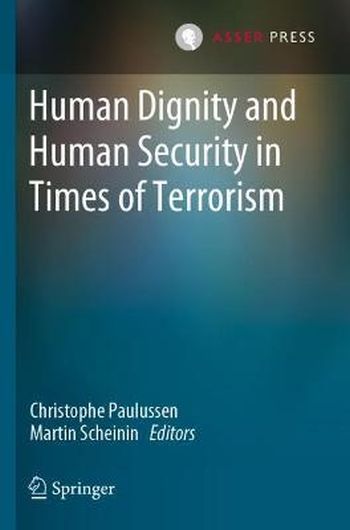
In this book, it is explained that despite a current drop in the number of deaths, terrorism should still be considered a serious and widespread problem. However, the responses to this phenomenon are often more problematic from a long-term perspective. With the human rights framework under serious pressure, this edited volume offers a timely, important and critical in-depth analysis of human dignity and human security challenges in the lead-up, and in the responses, to current forms of terrorism. It aims to map how human dignity and human security can be secured and how law can constitute a source of trust at a time when Europe and the rest of the world continue to be plagued by terrorism.
The authors are both established names and upcoming talent in this fastchanging and exciting field of law. They thoroughly analyse a variety of topical subjects, in more conceptual chapters-for example calling for the humanisation of the security discourse-and in highly practical contributions, in which for instance the Kafkaesque situation in which rendition and torture victim Abu Zubaydah still finds himself today is considered.
This book, which focuses on, but is not limited to the situation in Western countries, aims to inspire not only academics-through further theorisation on the sometimes elusive but important concepts of human dignity and human security-but also practitioners working in the field of countering terrorism. It will hopefully convince them (even more) that following a human rights approach will be indispensable in securing human dignity and human security for all. Even-or in fact: especially-in times of terrorism.